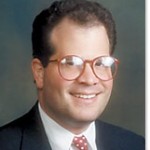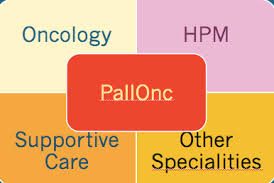George Washington never met an Oncologist. I know this because of the Cherry Tree story. If our first President had spoken to a cancer doc, then that honesty fable would have been different. Anyone can tell the truth about cutting down a tree. It takes real guts to say to an oncologist, “I cannot tell a lie, I have a problem.”
Doctors frighten all of us. No matter how warm and congenial they are, there is always the threat of what they may say. A few words from a physician can change your entire life. An oncologist may be the scariest of all. For this reason it can be very hard for any of us to tell our doctor the complete absolute truth.
It is easier to diminish or deny pain, then describe in detail and submit to tests. Emphasizing the balance in a diet has less risk than noting it is only 600 calories. Increasing fatigue can be blamed on stress, not progressive weakness. Everyone seems to have quit smoking, despite yellow stained nails. “Social” drinking sounds better than a daily six-pack. We carefully parcel out the information we tell our doctor. It is gut level denial and it does us no good.
Physicians understand the desire of patients to limit and control the conversation. They learn to recognize incomplete and evasive answers. They try to ask questions which produce accurate information. A compassionate doctor knows that his response to a patient’s words is as important as the question asked.
Even though it can be hard, it is in our best interests to supply good information to our caregivers. Doctors cannot make correct diagnoses or order proper treatment using erroneous data. Unneeded X-rays are frequently ordered to fill gaps in information, which the patient could have supplied. Understanding it can be tough to disclose personal medical facts, here are several ideas that might make communication easier and more complete;
1) Write down a list of complaints before the visit. We tend to be more truthful with ourselves in the quiet of our home, than nervous under bright office lights.
2) Bring an “honest” friend or relative to the visit and encourage their help. Try not to snarl when they contradict what you say or fill in the blanks.
3) Take a deep breath, take your time and make a specific effort to answer completely. Do not be afraid to “take too long.”
4) Try to be objective, scientific, almost like you are answering not about yourself, but about a person in the next room.
5) When the doctor is questioning about how you feel, answer in symptoms, not in diagnoses. For example do not say “I think I have a kidney stone like I read on the Internet,” say, “I have back pain which comes in waves.”
6) Trust that the doctor is not going to gasp, faint or throw up, by what you say. While the doctor is there at that moment to take care of just you, he/she has heard it all before. The doctor will not be bored or offended.
7) Do not be bashful and do not be embarrassed. This is the place to complain, whine and focus on you. Maybe there are other people who are “worse off,” but when you are with the doctor you are the only patient.
If you still find you are hiding facts from your doctor, ask yourself whether you trust him/her. If trust is an issue, then either discuss with your doctor or change physicians. If the doctor is distracted for a moment, pause until he/she focuses on you. If he/she never seems to focus, it is time to get a new doctor.
A good patient-physician relationship relies on communication. A competent physician should listen, show compassion and not ambush their patients. The patient’s job is to make certain the doctor has a complete understanding of what is happening. Together this team can cure disease and restore health.







Comment